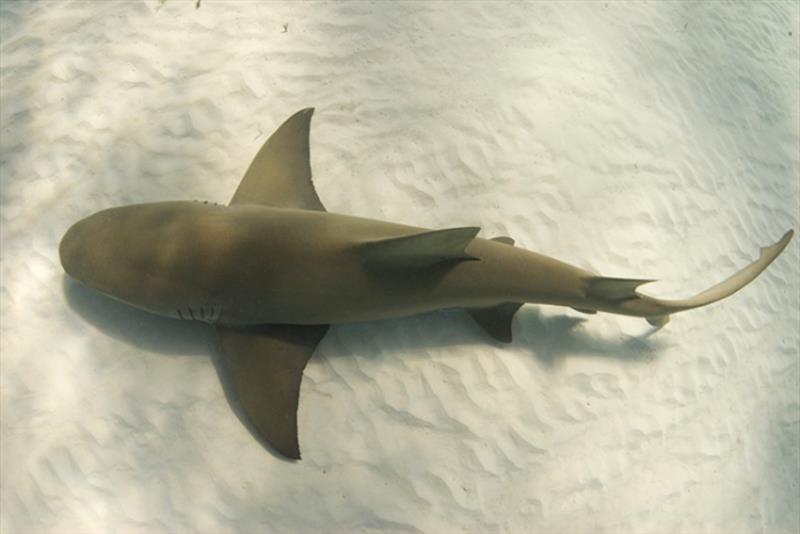
Six steps to sustainable sharks
by NOAA Fisheries 15 Aug 2021 09:10 BST

A lemon shark swimming as seen from above © iStock
NOAA Fisheries ensures that United States fisheries are some of the most sustainable in the world, including sharks. Of the 479 fish stocks or stock complexes we manage, 43 are shark species in the Atlantic Ocean.
Here we've broken down our management approach into six steps:
Step one: Research
Scientists spend months at sea and in the lab every year, collecting vital data on different marine species, including sharks. Shark research is conducted on NOAA's fleet of research ships, or through its cooperative research programs. That's where NOAA researchers work in conjunction with university scientists, the fishing industry, or other stakeholders to perform research activities. To see some of our shark research in the Atlantic, click below:
Step two: Assessment
Using the data collected about shark stocks, our scientists in coordination with other scientists and partners complete a stock assessment to measure the impact of fishing on these stocks. Assessments use the best information available, which may include data from fisheries landings, scientific surveys, and biological studies. They predict catch levels that maximize the number of fish that can be caught every year while preventing overfishing (removing too many fish). These limits protect the marine ecosystem and, where necessary, rebuild overfished (depleted) stocks. Results of stock assessments are used for setting sustainable levels of fishing under the authority of the Magnuson-Stevens Act.
Step three: Management
Completed stock assessments are sent to NOAA Fisheries managers to update the fishery management plan, set quotas, and other measures for shark stocks. Fishery management plans must comply with a number of requirements, including the 10 National Standards—principles that promote sustainable fisheries management.
Science-based fisheries management practices across interstate and international fisheries are essential as sharks often swim beyond jurisdictional boundaries. We are members of international fisheries management organizations such as the International Commission for the Conservation of Atlantic Tunas. We are also members of domestic fisheries management organizations such as the Atlantic States Marine Fisheries Commission, which works to coordinate consistent fisheries management across all states from Maine through Florida. Through these organizations, we promote the same fisheries management and conservation practices across all jurisdictions. The efforts help level the playing field for U.S. fishermen who operate in some of the most sustainably managed and heavily regulated fisheries in the world.
Step four: Monitoring
We monitor commercial and recreational shark catches to ensure compliance with domestic and international quotas and/or catch limits. As we monitor commercial catches, we are able to adjust the retention limit (how many sharks can be caught in a single trip). We also open and close the commercial shark fishery depending on how close catches get to the quota. Recreational catch data is used to support regular stock assessments, assess the appropriateness of bag and size limits, and set annual catch quotas for the fishery.
Step five: Enforcement
Enforcement is a critical component of sustainably managed fisheries. NOAA's Office of Law Enforcement is responsible for making sure that all fishermen in U.S. federal fisheries follow the rules. Special agents and enforcement officers ensure compliance with U.S. marine resource laws and take enforcement action when these laws are violated. They tackle seafood fraud in the United States to help reduce illegal fishing internationally. These special agents and enforcement officers make sure there is a level playing field for honest fishermen. They protect marine resources and their habitat and help safeguard the health of seafood consumers and the livelihoods of coastal communities.
Step six: You
You, too, can take part in our science and management process. Here are a some ways you can participate:
- Obtain a permit - Want to go shark fishing? Learn more about how to obtain your permit, and, if you're going recreational fishing, make sure to get a shark endorsement.
- Help us collect data through citizen science. Join our cooperative tagging program and help us learn more about where our sharks migrate.
- Tell us how you feel. NOAA Fisheries requests public comment any time we make changes to shark regulations or the requirements for fishermen. Tell us what you think about how we manage our sharks.